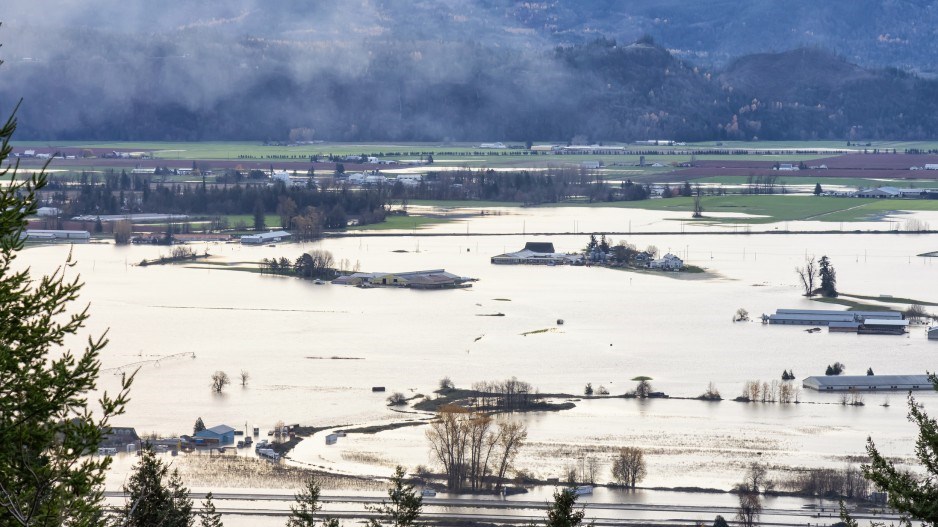After the torrential rains and floods that devastated Interior and Fraser Valley communities in November 2021, a researcher with the B.C. office of the Canadian Centre for Policy Alternatives (CCPA-BC) tested the regulatory regime.
Local authorities are responsible for maintaining dikes, but must file annual inspection reports to Victoria, which has the power to investigate and order repairs under the Dike Maintenance Act.
Ben Parfitt applied under the freedom of information law to five municipalities with extensive dikes, Abbotsford, Chilliwack, Merritt, Princeton and Richmond, seeking their statutory inspection reports from 2017 to 2021. He also asked an office inside the Ministry of Forests for its responses to those reports, including any orders written by the provincial inspector of dikes to improve flood protection. It was a classic tale of deluge and drought.
“In those 5,300 pages, there is but one single page from the provincial government, which is a single email running to less than a page,” Parfitt said in an interview. “And that's it for the provincial record.”
Three professional engineers occupied the inspector of dikes position since changes to the law introduced by the BC Liberal government in 2003, Neil Peters, Mitchell Hahn and Yannic Brugman. Parfitt could find no evidence that they had issued any orders to the local governments and he said the province told him that no such order had been written in recent years.
Parfitt’s research for the left-leaning think tank found that, beginning in 2018, Merritt’s reports from a professional engineer with Interior Dams showed its dikes were a failure waiting to happen. No major repairs occurred. The 2021 disaster caused at least $150 million in damage.
Parfitt also found Abbotsford and Princeton did not properly report to the province. Princeton even used its own staff, rather than hiring a professional engineer. While it is allowed by law, it is not a best practice.
Parfitt said the root cause appears to be the amendments in 2003 by the BC Liberals, to shift reporting responsibilities to local authorities. Premier Gordon Campbell’s government was fond of cutting red tape and offloading.
"So while it is true, that there may have been more and more reliance placed on outside professionals to make certain calls, oversight was to remain with the province and this is where I think we're seeing problems,” he said.
The CCPA-BC wants the province to assume authority for all dikes, something Union of B.C. Municipalities members endorsed at their September 2022 convention, and provide more funding to upgrade dikes. The Auditor General should also be called upon to review provincial dike regulation.
While Parfitt said he was not troubled by significant delays or costs – “it was not as painful an FOI process as others have been for me” – he was taken aback by an answer to one of his follow-up questions to the Ministry of Forests about who is actually in charge. The government’s online directory showed only one person with the word “dike” in the job title.
“I was told I would have to file a Freedom of Information request just to find out the names of these individuals,” he said. “It was at that point that I wrote the ministry back and I said, ‘look, this is ludicrous, you and I can do a Google search under B.C. government directory, and when you get to the B.C. government directory, it spits out any one of a number of names of public servants.’ So I pointed this out to the ministry and I said, ‘all I'm asking for here are the names, and I hope you're not going to make me report that I have to FOI this. At which point, the next day, suddenly I had a list of names.”
Ultimately, Parfitt said, copies of the annual dike inspections should not be subject to FOI requests. They should simply be published proactively by each municipality or the province itself.
“Especially when we're talking about matters concerning public health and safety,” he said.





